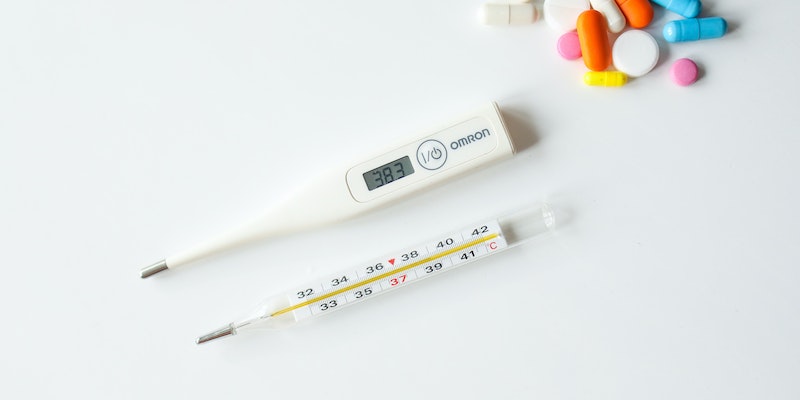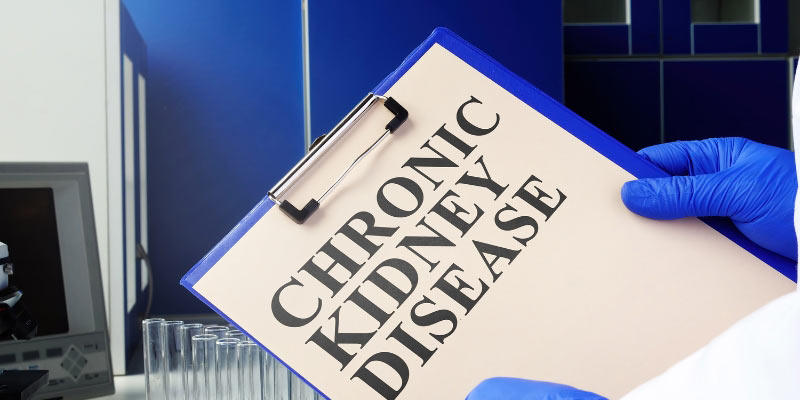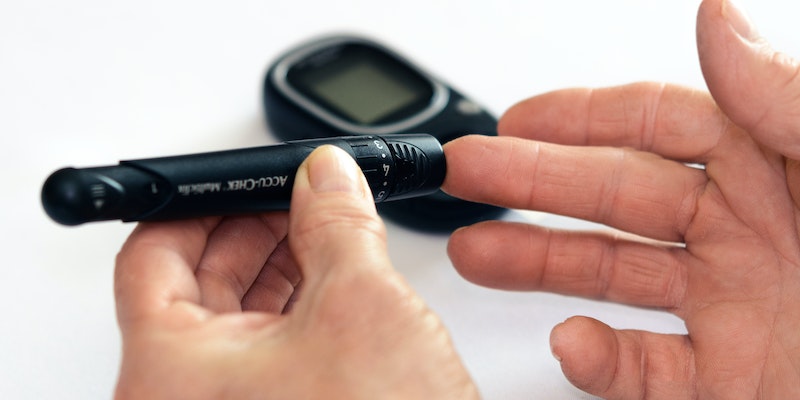
Diabetic Kidney Disease (DKD), a significant diabetic consequence, is an increasing medical problem. With millions of diabetics worldwide, DKD prevalence is rising. Understanding this disease's subtleties can improve care and prevention.
Quick Facts
- One in 10 persons worldwide has chronic renal disease.
- Regular monitoring is crucial for early-stage renal disease, which rarely causes symptoms.
- About 40% of people with type 2 diabetes have renal disease, showing their close link.
What is Diabetic Kidney Disease?
Long-term diabetic kidney disease diabetes causes nephropathy, which destroys the kidneys. To provide the best care, doctors must understand this disease's complexity.
Body Function of Kidney
- The kidneys filter the body.
- They remove waste, poisons, and extra fluids from the blood.
- Kidneys produce hormones that regulate blood pressure, red blood cell formation, and bone calcium metabolism.
Kidney Effects of Diabetes
High Sugar Damage: Chronic elevated blood sugar levels can harm the glomeruli — the kidneys' filtering units. Over time, this results in the kidneys losing their filtering ability.
Pressure Build-Up: The kidneys' filtration system relies on a network of tiny blood vessels. Excessive sugar in the blood can cause these vessels to narrow, causing a buildup of pressure and further damaging the kidney’s filtering ability.
Causes and Risk Factors
The onset and progression of Diabetic Kidney Disease aren't uniform for all individuals. While diabetes is the overarching cause, several other factors increase the risk of developing this kidney complication.
Primary Causes
- Chronic High Blood Sugar: kidney disease of diabetes is impacted by High blood sugar, which damages renal blood vessels, reducing filtering ability.
- Kidney Tissue Damage: Long-term diabetes can thicken and damage renal tissue, reducing kidney function.
Risk Factors to Consider
Understanding these risk factors can aid healthcare professionals in better identifying and managing potential kidney disease of diabetes DKD patients:
- Duration of Diabetes: People with diabetes for over ten years are at higher risk.
- Uncontrolled Blood Sugar: Non-adherence to diabetic treatments can cause unchecked blood sugar.
- High Blood Pressure: Kidney disease causes and contributes to hypertension.
- Family History: Genetics affect family history. A family history of renal disease increases risk.
- Smoking: Diabetics might worsen kidney damage from smoking.
- Cholesterol Levels: High lousy cholesterol (LDL) levels can contribute to the risk.
Diabetic Kidney Disease Stages
It's pivotal to recognize that DKD progresses in stages. Each stage reflects the severity of kidney damage and dictates the course of treatment.
Stage Overview:
Stage 1 - Initial Phase
Kidney damage with average or increased GFR (Glomerular Filtration Rate: >'90 mL/min)
Presence of small amounts of protein (albumin) in urine.
Stage 2 - Mild Decline
A slight reduction in GFR (60-89 mL/min).
Increased albumin in urine signals the start of kidney function decline.
Stage 3 - Moderate Decline
Noticeable reduction in GFR (30-59 mL/min).
Symptoms like fatigue and fluid retention may start to appear.
Stage 4 - Severe Decline
Significant drop in GFR (15-29 mL/min).
Symptoms become more evident, and there may be a need to discuss more aggressive treatment options.
Stage 5 - End-stage
Kidney failure or end-stage renal disease sets in (GFR <15 mL/min or on dialysis). At this point, dialysis or a kidney transplant becomes essential.
Diabetes Kidney Disease Signs and Symptoms
The early stages of diabetic kidney disease (DKD) may not show symptoms, making it a "silent" condition. As the state advances, further symptoms may appear. Detecting these symptoms can help manage and reverse the disease.
Initial Warning Signs
- Fatigue: One of the earliest signs is that individuals with DKD may feel tired more often, even after a good night's sleep.
- Frequent Urination: Especially during the night, it can indicate that the kidneys are working overtime.
- Puffiness or Swelling: Fluid retention often results in swelling around the eyes, feet, ankles, and hands.
- Weight Gain: Sudden or unexplained weight gain might result from fluid accumulation due to diminished kidney function.
- Advanced Indicators: Nausea and Vomiting: As waste accumulates in the bloodstream, it can cause feelings of persistent nausea or episodes of vomiting.
- Loss of Appetite: Patients may lose interest in food or experience changes in their taste preferences.
- Muscle Cramps: Particularly in the legs, caused by imbalanced electrolytes.
- Persistent Itching: Accumulated waste in the blood can lead to severe itching.
- Shortness of Breath: Fluid buildup in the lungs or anemia related to kidney disease can result in this symptom.
Diagnostic Procedures for Diabetic Kidney Disease
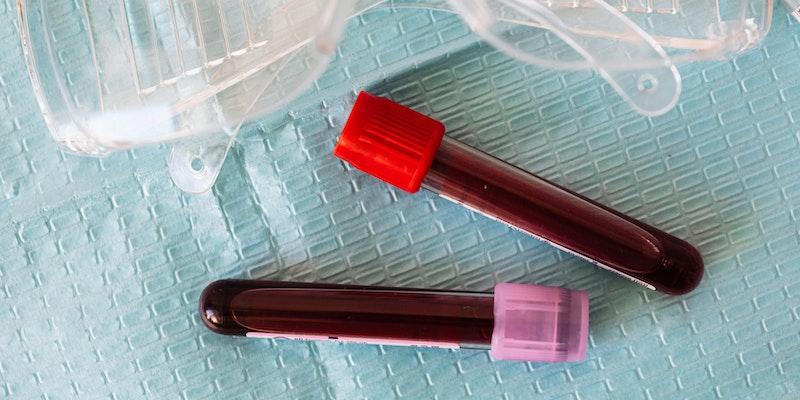
Identifying DKD in its early stages is vital to manage its progression. Multiple diagnostic tests can help medical professionals pinpoint kidney damage and assess its severity.
Urine Test
- Purpose: To detect albumin, a protein that shouldn't be present in urine in significant amounts. The presence of albumin can indicate kidney damage.
- Results: A typical urine albumin result is less than 30 mg/g. Anything above this can be a sign of kidney disease.
Blood Test
- Purpose: To measure the amount of waste products in the bloodstream, such as creatinine and urea.
- Results: Elevated levels of these waste products can indicate impaired kidney function.
Glomerular Filtration Rate (GFR)
- Purpose: This test estimates how well the kidneys filter waste from the blood. They were calculated using creatinine levels, age, sex, and other factors.
- Results: A GFR below 60 mL/min suggests kidney disease.
Kidney Ultrasound
- Purpose: A non-invasive test that uses sound waves to create images of the kidneys, revealing any physical abnormalities.
- Results: Cysts, tumors, obstructions, or physical changes in size and structure can be observed.
Treatment Options for Diabetic Kidney Disease
Treating DKD aims to limit its progression and address its causes, mainly high blood sugar and hypertension.
- Blood Pressure Management: Medications: ACE inhibitors (lisinopril, enalapril) and ARBs (losartan, valsartan) commonly treat hypertension in DKD patients.
- Lifestyle changes: Cutting sodium, drinking less, and exercising help lower blood pressure.
- Blood Sugar Control: Medications: Oral antidiabetic medications and insulin therapy assist in maintaining healthy levels.
- Lifestyle changes: Nutrition, blood sugar monitoring, and exercise can lower blood sugar.
- Cholesterol Management: To prevent kidney damage, statins like atorvastatin and rosuvastatin manage cholesterol.
- Lifestyle changes: Cutting saturated and trans fats lowers cholesterol.
Advance Interventions
- Dialysis: Advanced dialysis requires manual blood filtration. Standard dialysis is hemodialysis and peritoneal.
- Kidney Transplant: A kidney transplant may best treat end-stage renal disease. It replaces the damaged kidney with a donor.
Diabetic Kidney Disease (DKD) Prevention and Management
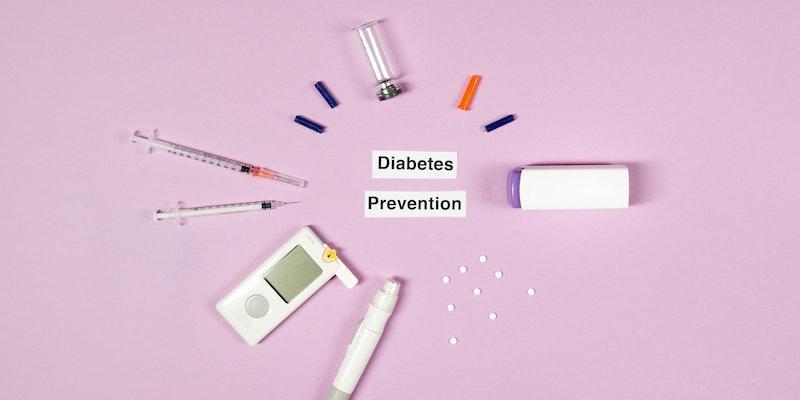
Healthy Diet For DKD
- Reducing Salts: Controlling blood pressure with less salt reduces renal strain. For taste, use herbs and spices instead of salt.
- Protein: A healthy diet is ideal. Protein excess can strain the kidneys, while protein deficiency might impair nutrition.
- Limiting potassium and phosphorus: As kidney function weakens, these minerals are harder to filter; therefore, diet may need to be adjusted.
- Hydrate: Water helps kidneys function.
- Regular physical activity is crucial for overall health, especially for people at risk of DKD.
- Consistency: Exercise helps maintain an optimal weight, reducing hypertension and DKD risk.
- Exercise: Walking, swimming, and cycling are good. To maintain consistency, choose something fun.
- Caution: People with health issues should consult a doctor before starting a new workout routine.
- Avoid smoking and drinking: Smoking and heavy alcohol intake might worsen renal disease.
- Smoking: It constricts kidney blood arteries, decreasing function. Smoking cessation slows DKD and related disorders.
- Wine: Moderate alcohol use may not affect renal function, but excessive drinking can raise blood pressure and interfere with prescriptions.
- Review Drugs: OTC drugs can damage renal function. You must discuss all medications with a doctor.
- Consistency: Missing doses or the prescribed regimen can exacerbate the disease. Taking drugs as defined is essential.
